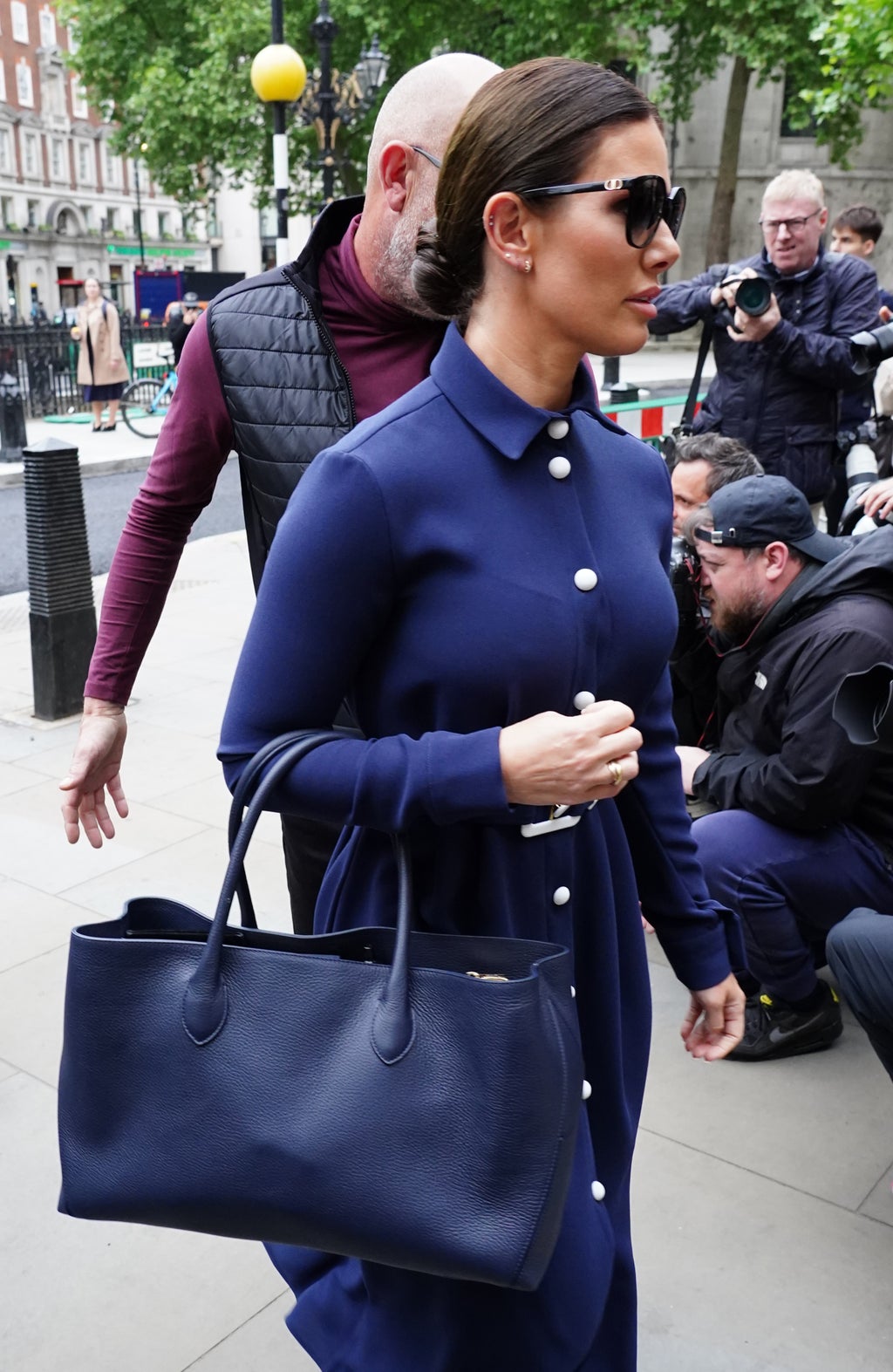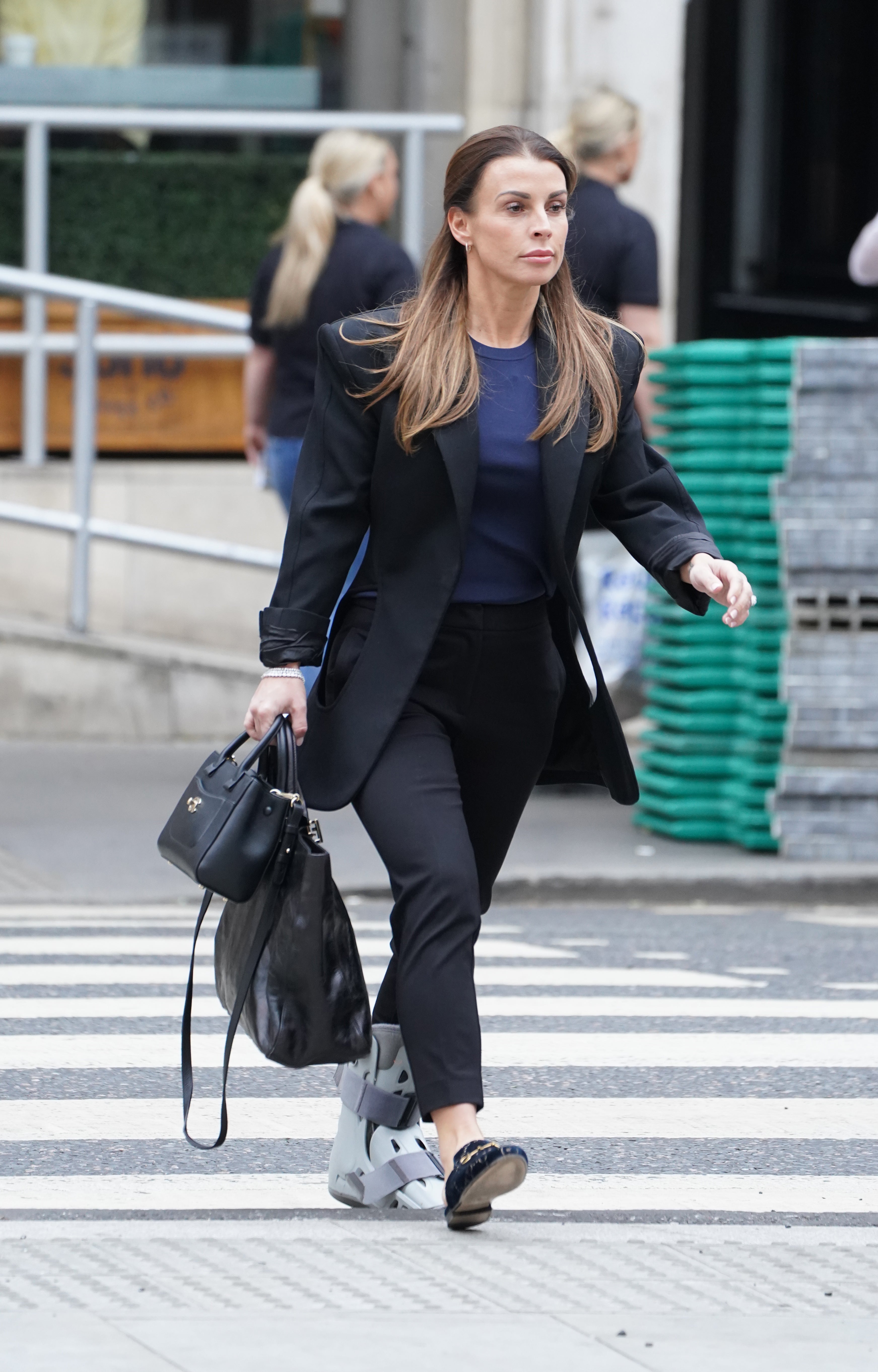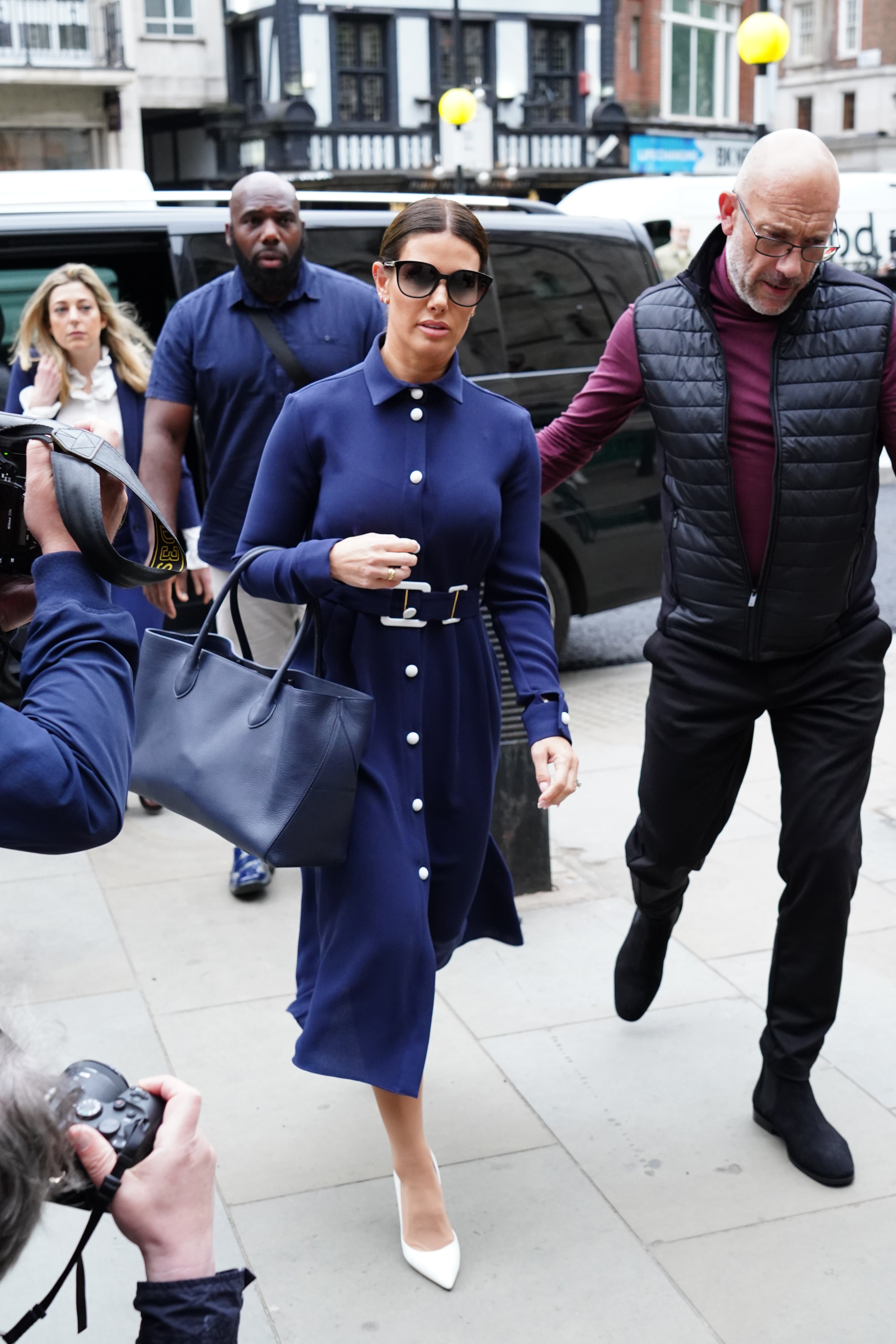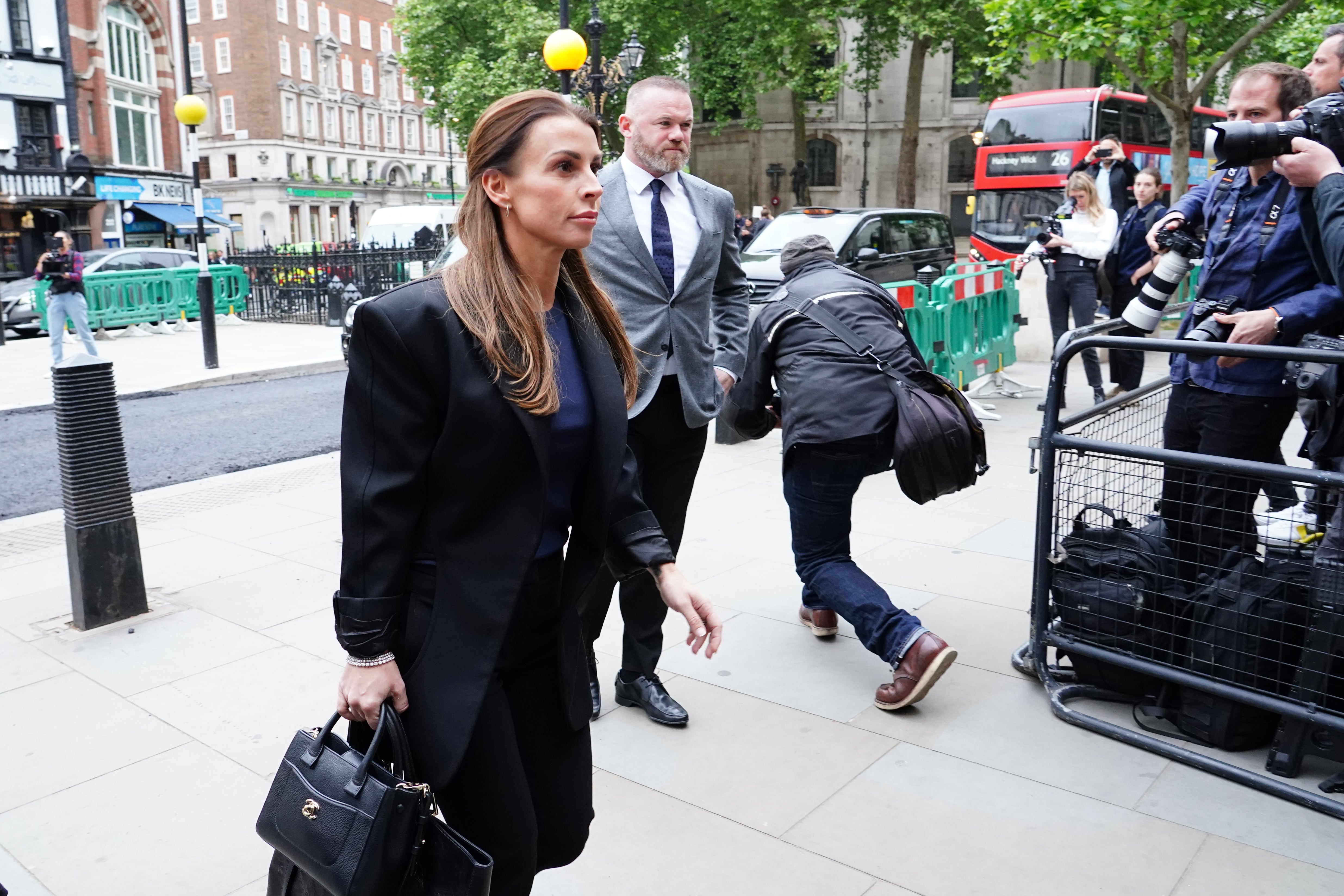
Rebekah Vardy “had no choice” but to bring the libel claim against Coleen Rooney to “establish her innocence” the High Court has been told.
Mrs Rooney, 36, accused Mrs Vardy, 40, of leaking “false stories” about her private life to the media in October 2019, after she said she carried out a months-long “sting operation”.
The wife of former England star Wayne Rooney was dubbed “Wagatha Christie” when she publicly claimed her fellow footballer’s wife shared three fake stories she had posted on her personal Instagram account with The Sun newspaper.
The fake stories included Mrs Rooney travelling to Mexico for a “gender selection” procedure, her planning to return to TV, and the basement flooding at her home.

In a now infamous post on Twitter and Instagram, Mrs Rooney wrote: “I have saved and screenshotted all the original stories which clearly show just one person has viewed them.
“It’s ………. Rebekah Vardy’s account.”
Mrs Vardy, who is married to Leicester City striker Jamie Vardy, denies the accusations and is suing Mrs Rooney for libel.
After months of preliminary hearings, Tuesday marked the start of the full trial which is due to last seven days.
Mrs Rooney arrived at the Royal Courts of Justice on Tuesday with her husband, also 36, who had a trophy-laden career with Manchester United and is now manager of Derby County.
Wearing a black suit and with her foot in a brace, she entered the Royal Courts of Justice on the Strand by the front entrance, flanked by a crowd of photographers.

Mrs Vardy arrived moments after Mrs Rooney entered the building, wearing sunglasses and a long blue buttoned dress.
Both women sat at the front of the court, in front of their barristers, as the hearing began.
Mrs Vardy’s barrister, Hugh Tomlinson QC, said the TV personality had to bring the libel claim to “vindicate her reputation”.
He said in written submissions: “The allegation in the post was and remains false: Mrs Vardy had not leaked information about Mrs Rooney or her friends and family to the Sun newspaper from her private Instagram account.
“Mrs Rooney did not have the ‘irrefutable’ evidence that she claimed to have had: her so-called ‘careful investigation’ was nothing of the sort.
“If anyone had been leaking information from Mrs Rooney’s private Instagram this was not done with Mrs Vardy’s knowledge or approval.”
He continued: “Mrs Vardy made strenuous but unsuccessful attempts to settle the case but the post was not taken down.
“As result, Mrs Vardy had no choice but to bring this libel action to establish her innocence and vindicate her reputation.”

Mr Tomlinson told the court that, as a result of the post, Mrs Vardy, who was seven months pregnant at the time, and her family were subjected to horrible abuse, including one post calling her an “evil rat-faced bitch” and others saying she should die and her baby should be “put in an incinerator”.
He said her husband, Jamie Vardy, was also subjected to chants about her during football matches.
Mr Tomlinson said the affair and subsequent libel case had become the subject of intense press coverage and a source of “entertainment” in the media, being referred to as “Wag Wars” and “Wagatha Christie”.
He added: “This is far from being an entertaining case, it has been profoundly distressing and disturbing.”
He said Mrs Rooney’s post on Instagram was liked about 93,000 times while the Twitter post received more than 300,000 likes.
Mr Tomlinson added: “(Mrs Vardy) needs to be able to clear her name through this case, so she can move on from this terrible episode.”
Mrs Rooney is defending the claim on the basis of truth and public interest.
In written submissions, her barrister David Sherborne said there were “numerous examples of the claimant and Ms (Caroline) Watt conspiring to pass private and personal information on to the press about other individuals”.
He continued: “In short, the claimant is someone who has secretly provided, or sought to provide, to the press private information which she has been privy to in relation to a number of individuals in the footballing world or other celebrities, and not just the defendant, without their consent.”
The barrister later said there had been “widespread and significant destruction or loss of evidence” in the case, which notably include the loss of Ms Watt’s phone in the North Sea.
“To borrow from Wilde, to lose one significant set of documents may be regarded as a misfortune, to lose two, carelessness, but to lose 10? That must be concealment,” he wrote.
The trial before Mrs Justice Steyn continues, with a decision expected in writing at a later date.







